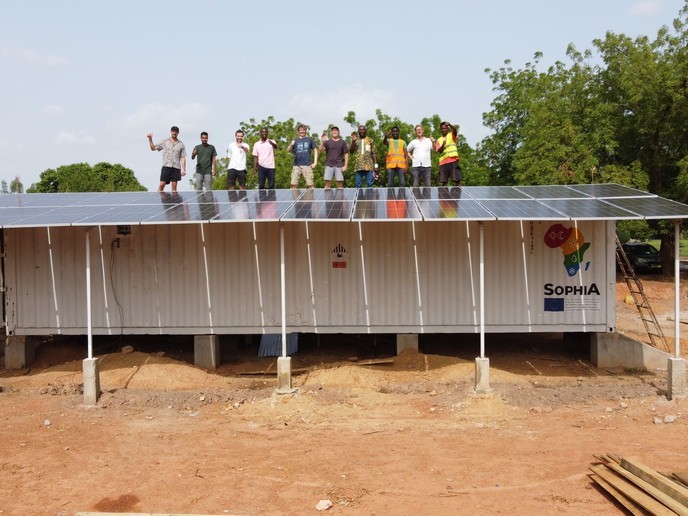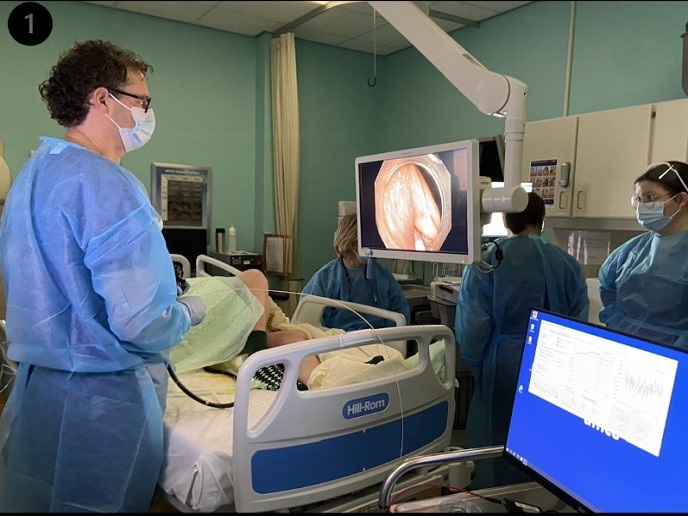Renewable energy solution for better healthcare in Africa
Around a quarter of healthcare facilities across sub-Saharan Africa operate without electricity and only 28 % report reliable power. This reality directly impacts the quality of care in over 120 000 public health facilities, including approximately 22 000 hospitals and 98 000 health posts. Without reliable energy and clean water, basic medical services and quality of care from vaccine storage, surgical sterilisation and sanitation remain compromised.
Tailored solar energy for remote hospitals
The EU-funded SophiA(opens in new window) project set out to change this reality by delivering clean energy, refrigeration and water solutions tailored specifically for remote African healthcare settings in Burkina Faso, Cameroon, Malawi, and Uganda. The consortium has developed modular systems powered entirely by solar energy. Each system delivers refrigeration, water purification, and steam generation using a mix of photovoltaics and solar thermal technology. The SophiA system offers stable temperatures essential for preserving blood plasma, vaccines, and other temperature-sensitive supplies. Complementing this is a water purification module that provides safe, pathogen-free drinking water, as well as deionised and hot water for medical use. To ensure reliable operation and energy efficiency even when sunlight is intermittent, the team has developed a low-temperature thermal storage system based on ice and an innovative high-temperature energy storage unit. Moreover, the project has introduced the PVmedPort, a stand-alone solar-powered unit designed for mobile outreach vaccination and education campaigns beyond hospital walls. It includes shaded benches, solar-powered refrigeration, and can function as a fully autonomous care station. “Crucially, the SophiA-generated systems have been designed to integrate seamlessly with existing infrastructure, eliminating the need for major structural changes to hospital buildings,” outlines project coordinator Michael Kauffeld.
Cross-continent collaboration
SophiA brought together engineers, scientists, social researchers, and public health officials from both Europe and Africa. African partners, including Everflo(opens in new window) in South Africa and academic institutions 2iE(opens in new window) in Burkina Faso and Makerere University(opens in new window) in Uganda, played leading roles in manufacturing, local training, and social acceptance. European partners provided complementary technical expertise, project coordination, and capacity building. The resulting partnership has proven to be mutually enriching and highly effective in translating innovation into impact. Among the project’s biggest challenges were logistical hurdles such as navigating complex customs regulations in the four African countries and dealing with global supply chain disruptions due to geopolitical tensions. Nonetheless, the team overcame these obstacles with determination. As Kauffeld reflects: “It wasn’t rocket science to build the systems but making it all happen across four African countries was an incredible journey. The real reward comes from the impact of the work; staff and patients enjoying the safe operation of rural clinics.”
Lasting impact and future prospects
As the project enters its final phase, installations in Malawi and Uganda are being completed and data collection continues. Looking ahead, the consortium is working to secure funding or establish a SophiA Foundation to expand installations across the continent. Ultimately, the project offers a compelling model of how clean energy can be harnessed to strengthen healthcare infrastructure, improve lives, and contribute to global development goals.







